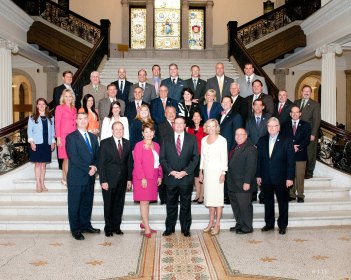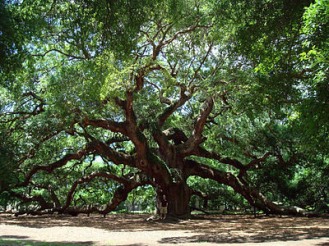
Joe Kelly
The latest wisdom is that we should ignore Donald Trump’s tweets. They are the magician’s misdirection, and while we all watch his left hand swipe at Meryl Streep, his right hand will pick our pockets.
But the Twitter War with John Lewis is no distraction. That’s the hand we need to watch, because it’s raised against our Southern way of life.
When I say “our Southern way of life” I do not mean the Old South, segregation, and an all-white Democratic Party running the government. I mean the New South, the one I grew up in, the integrated South born by the blood of martyrs.
I saw John Lewis when he came to Charleston on MLK Day in 2013. He talked about the freedom ride in 1961, how he faced a lynch mob of white supremacists in Rock Hill. Throughout the struggle, he was arrested over forty times. And yet, in Charleston in 2013, he spoke about the power of love.
 In the New South, John Lewis is giant. He is from the heroic age, when Martin Luther King, Jr. still walked among us. When James Chaney and Schwerner and Goodman had the courage to register black people to vote in Mississippi. When Samuel Hammond, Delano Middleton, and Henry Smith were shot dead by state police in Orangeburg. When Lewis came in the room, you could sense it in the way people in my generation, who were too young to be part of the struggle, reacted—black folks and white folks together in the audience–hushed, reverent.
In the New South, John Lewis is giant. He is from the heroic age, when Martin Luther King, Jr. still walked among us. When James Chaney and Schwerner and Goodman had the courage to register black people to vote in Mississippi. When Samuel Hammond, Delano Middleton, and Henry Smith were shot dead by state police in Orangeburg. When Lewis came in the room, you could sense it in the way people in my generation, who were too young to be part of the struggle, reacted—black folks and white folks together in the audience–hushed, reverent.
Maybe this flies in Mar-a-Lago, but that ain’t the real South. In the real South, when a man like John Lewis talks, you listen. If he criticizes you, you better take stock. You better give yourself a thorough look in the mirror. You might end up disagreeing. After all, even a giant is still a man and not infallible. But you better take stock.
Here’s what you don’t do. You don’t shout some playground insult, deprecate the man’s contributions to Southern society, and conclude with the oh-so-superior summation, “Sad!” Not when your own contribution to the civil rights struggle was . . . what exactly did Mr. Trump do in the 1960s?
Sad. Today is a sad day. From Texas to Virginia, Florida to Tennessee: Sad!
Civil rights in the South almost always came down to the federal government overpowering all-white state governments. South Carolina’s Strom Thurmond drew the battle lines pretty clearly when he shook his fist at the Senate and declared that “all the laws of Washington and all the bayonets of the Army cannot force the Negro into our homes, into our schools, our churches, and our places of recreation and amusement.”
He was wrong. By the power of the federal judges (like College of Charleston graduate, Julius Waties Waring) and the Department of Justice, civil rights came to South Carolina. Now Thurmond’s filibuster is on the scrap heap of history.
People like Nikki Haley and Lindsay Graham tell us that the battles are over. The New South has thoroughly taken root and flourished, like a gigantic live oak, and we all enjoy its shade, sipping sweet tea together. There is no New Jim Crow.
Perhaps they are right.

South Carolina’s GOP House caucus
But the signs trouble me. For the first time since the old Jim Crow, South Carolina is ruled an all-white party. To be fair, the Republican Party does not exclude blacks. But neither does it include them. It mocks blacks who complain about our Voter I. D. law. It gerrymanders districts to dilute black participation in government. It connives to escape its Constitutional obligation to educate black children—even to the absurd standard of “minimally adequate.” It has prevented the federal government from giving our working poor access to health care. It adamantly opposes the right of working men and women to bargain collectively. It opposes a living

Clementa Pinckney
wage. Nine church-members in Charleston had to be murdered before the Republicans budged, grudgingly, on the Confederate flag.
As a white man, I am cautious about identifying a “black” point of view, but except for Tim Scott, African Americans in South Carolina are remarkably unanimous on many of these issues. We might take Charleston’s own Clementa Pinckney as an eloquent voice of black interests, and then it becomes clear that Republicans don’t want to attract blacks to their party. They oppose almost everything Pinckney spoke for.

Angel Oak on Johns Island near Charleston
The New South is not yet Angel Oak. Its branches are strong, but they do not stretch wide enough to shade everyone. We know that because Clementa Pinckney was shot dead last year. We were surprised to discover that this, too, is an age of giants.
Under Donald Trump, nothing will stand between my beloved South and the oak-leveling wind of all-white government. Nothing but Jeff Sessions. Sad.


I’ll admit I’m a transplant, so I may not catch the subtleties of the Southern point of view – Old South or New South. But I’ve lived in Charleston for nearly half a century, and my children grew up here. I was with you until that last paragraph. Help me decipher what you intended. I know that Jeff Sessions is definitely not New South.
LikeLike
Sorry for the fogginess. What I meant was, under Trump, the Federal Government is not going to protect those whom Southern state gov’t’s have historically oppressed. Jeff Sessions, the new Attorney General, belongs in the by-gone age. He is not likely, for instance, to order a Justice Dept. investigation into alleged racial profiling by, say, the North Charleston Police Department. Nor do I expect him to investigate and prosecute hate crimes. He likes to suppress black voters, etc.
LikeLiked by 1 person